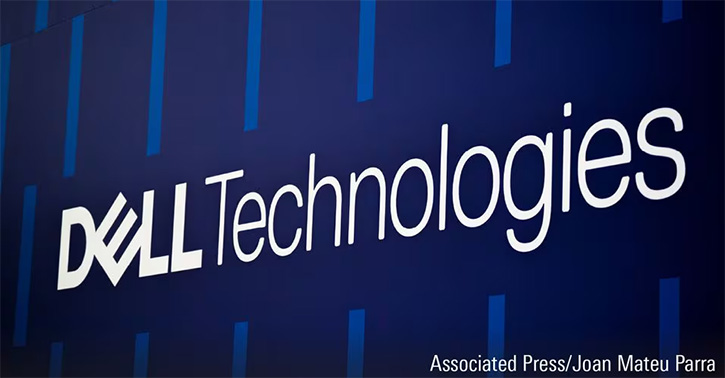
Reddit is looking to list on the New York Stock Exchange with the ticker RDDT next week.
Indeed, public filings reveal it is looking to raise more than $500 million, valuing it at up to US$6.4 billion.
This initial public offering (IPO) is the first major social media debut since Pinterest (PINS) in 2019. However, it comes after a series of buzzy listings last Autumn – see Arm Holdings (ARM), Instacart (Maplebear) (CART), Klaviyo (KVYO), and Birkenstock (BIRK).
All have since failed to ignite the IPO market.
As such, Reddit will be a test case after the IPO dearth, according to Morningstar market strategist Michael Field:
"A successful IPO could tempt others to market. But it's tough to say if it will be successful and if the appetite is there. On the one hand, equity markets are at all-time highs, but on the other hand investors are cautious about IPOs."
According to Morningstar's PitchBook Data, there are several other companies that look like candidates for listing this year. The company polled its emerging technology research team, collecting the 20 most likely venture capital-backed IPO prospects over the next year.
Why is Reddit Listing?
Owner of the eponymous social media brand, Reddit has created stock market buzz before, largely due to the role the WallStreetBets community played in the meme stock frenzy of 2021, in which stocks like GameStop (GME) and AMC (AMC) were artificially inflated by users of its platform. With this planned float, loyal Redditors are likely to benefit too, as the company is planning to reserve some shares at listing price for them.
Financials-wise, the company's cash flows are improving, but it is yet to see an annual profit. In the 2023 calendar year, it reported a net loss of US$90.8 million (on revenue of US$804 million). As such, a target valuation US$6.4 billion is significantly less than the US$10 billion valuation it posted in 2021, according to PitchBook. Boosting it will require plans to expand a nascent advertising business and diversify its revenue sources to bear fruit.
This plan involves licencing its vast pool of user data to third parties for various purposes, including research and the training of artificial intelligence models. Analysts say this could draw attention from investors, especially given the connection to the AI theme, which has propelled markets higher this year.
Morningstar's Field notes, however, that while the theme was a success for Arm, "AI is a different fish altogether, and Reddit doesn't have the backing that AI does".
Who will IPO Next?
PitchBook analysts have looked for venture-backed startups with compelling IPO characteristics, such as strong revenue growth and margin potential, durable businesses models, capable management teams with successful track records, and/or product and technology offerings with realistic chances of disruption and growth.
IPO Candidate 1: Klarna
• Revenue: $549.5 million in Q3 2023, $2.1 billion last 12 months;
• Public Competitors: Affirm (AFRM), PayPal (PYPL), Sezzle (SEZL);
• IPO Probability: 92%.
Klarna is a leading buy-now-pay-later (BNPL) company that operates in the US, Europe, and Australia. The company's core product offerings are interest-free short-term loans that allow consumers to split their purchases into multiple installments, but it also offers longer-term loans with interest, debit cards, an AI-powered shopping app, and B2B solutions for merchants. Klarna primarily derives revenues from merchant fees, interest income, interchange, and affiliate marketing.
The IPO Rationale
Klarna is a market leader in the BNPL space and has continued to expand its share. The company currently recognises 150 million global active users and two million daily transactions. Affirm, Klarna's closest US competitor, has just 17.6 million of the former.
In existence for nearly two decades, the company now boasts many notable investors on its cap table. However, this also creates complexities in Klarna’s capital structure. An IPO would simplify this by converting preferred shares into common shares. Furthermore, Klarna's chief executive has recently made public comments hinting at a near-term IPO.
Klarna has been steadily improving its financials. In Q4 2023, Klarna grew revenues 26.0% YoY to US$704.2 million and improved its net loss by 76.1% YoY to US$43.5 million. The company also reduced credit losses by 32.3% year-on-year to US$373.3 million, and saw a credit loss rate of 0.4% for FY2023. In gearing up for a potential IPO, Klarna has also explored diversification of its revenue streams through its debit card, affiliate marketing income, and recently launched subscription service.
By Rudy Yang, senior analyst, emerging technology, PitchBook
IPO Candidate 2: Northvolt
• Revenue: $179.3 million in 2022;
• Public Competitors: BYD (002594), Panasonic (6752);
• IPO Probability: 97%.
Northvolt produces batteries with a low carbon footprint for mobility and stationary energy storage applications. Founded by former Tesla employees, the company focuses on lithium-ion battery chemistry but also develops and produces batteries with sodium-ion chemistry and develops battery recycling technology. Initially focusing on European markets, Northvolt is expanding production in North America.
The IPO Rationale
Having delivered its first commercial batteries in 2022, Northvolt is rapidly scaling up its global manufacturing capacity.
The company's "Ett" gigafactory in Sweden began construction in 2019, and capacity is expanding for both cell production and recycling.
In tandem, Northvolt is establishing its first gigafactory in North America, with the announcement of "Northvolt Six" in Montreal, which is expected to begin commercial production in 2026. In total, the company has two operational production facilities and a further four in construction or planning.
A public listing would likely improve Northvolt's ability to raise both equity and debt, which are essential in a capital-intensive industry such as battery manufacture. So far, it has raised US$14.3 billion including grants and debt financing.
Northvolt sits in a relatively unique space in European markets due to its size and the scarcity of lithium-ion and sodium-ion battery producers in Europe. Indeed, the company's primary production facility in Sweden sits in the north of the country, close to significant hydropower infrastructure, which provides relatively cheap low-carbon electricity. Many of its competitors are based in East Asia, which is currently exposed to increased geopolitical risk. European buyers have historically had little choice over where they buy li-ion batteries, so Northvolt looks poised to benefit.
Financially, Northvolt's revenue has been growing steadily over the last two years, although high costs from scaling manufacturing capacity has resulted in negative EBIT margins. The company is now targeting fast-growing applications in both stationary energy storage and the mobility space. Current investors include large European automotive companies such as Volvo and Volkswagen, while Northvolt customers include BMW, Fluence, Scania, Volkswagen, Volvo Cars, and Polestar.
By John MacDonagh, senior analyst, emerging technology, PitchBook
IPO Candidate 3: Getir
• Revenue: $460.5 million in 2022;
• Public Competitors: Delivery Hero (DHER), DoorDash (DASH), Deliveroo (ROO);
• IPO Probability: 91%.
Getir is an on-demand delivery service that specialises in ultra-fast grocery delivery and convenience retail. Through its mobile app, Getir allows customers to browse a wide selection of grocery items, household essentials, and other convenience products and have them delivered in minutes. Getir's unique selling proposition lies in its promise of rapid delivery, typically within 10 to 15 minutes, making it a convenient option for consumers seeking immediate access to everyday essentials.
The IPO Rationale
Getir has raised more than US$2.3 billion in VC funding. The company's recent down-round lowered its valuation from US$11.8 billion to US$2.5 billion, potentially indicating leadership's acknowledgment of the new economic paradigm and the company's desire to reposition itself for an attractive public listing. Well-known venture capital firms, including Tiger Capital, Goodwater Capital, Sofina, and Sequoia, have invested in its growth.
Despite being a relatively young company (it was founded in Instanbul in 2015), Getir has expanded aggressively. It operates in populous European cities such as London, Berlin, Amsterdam, and Paris, in addition to 28 provinces in Turkey. It has also acquired several leading companies, including FreshDirect, Gorillas, and Blok, further broadening its reach.
The increasing consumer demand for convenience and on-demand services, especially in the wake of the covid pandemic, also creates a favourable market environment for Getir's grocery delivery business. As consumer preferences continue to shift toward online shopping and instant gratification, Getir is well-positioned to capitalise.
By Alex Frederick, senior analyst, emerging technology, PitchBook
IPO Candidate 4: Stripe
• Revenue: US$3.2 billion in 2022, US$2.6 billion in 2021;
• Public Competitors: Adyen (ADYEN);
• IPO Probability: 96%.
Stripe started as a developer-first merchant acquirer for e-commerce and has since added multiple financial products including fraud detection and prevention, billing, payments terminals, invoicing, carbon removal, sales/VAT tax tools, and more.
The IPO Rationale
Stripe is 14 years old, has raised US$9.1 billion, and likely needs liquidity for employees and investors. Its revenue base is large, and it has a strong growth profile that is similar to those of other public companies. Key questions that will determine the timing of its IPO include the extent to which large investors, including employees, push Stripe to go public.
Most VCs are notoriously hands-off when it comes to pushing for a listing, depending on whether the founders and their VCs think now is the right time to subject Stripe to the scrutiny of public markets. This often shifts operational focus to margin expansion.
Secondary trading data indicates Stripe's valuation has improved more than US$70 billion from US$50.0 billion in its prior raise, but is still below its peak valuation of US$90.0 billion. (We note secondary trades have valued the company much higher). The increase suggests strong revenue growth and a positive margin trajectory. Investors in Stripe's latest US$6.9 billion round would make a 40% return at a US$70.0 billion valuation.
Like Instacart, Stripe's cap table has plenty of investors who have invested in both early- and late-stage rounds. It is probably in-the-money on its position. As a result, there are likely fewer big holders who are underwater and pushing to wait for a better valuation.
By James Ulan, lead analyst, emerging technology, PitchBook







:quality(80)/cloudfront-us-east-1.images.arcpublishing.com/morningstar/RZFNNTX73BFEFFVRRAFYC6OEOQ.png)












